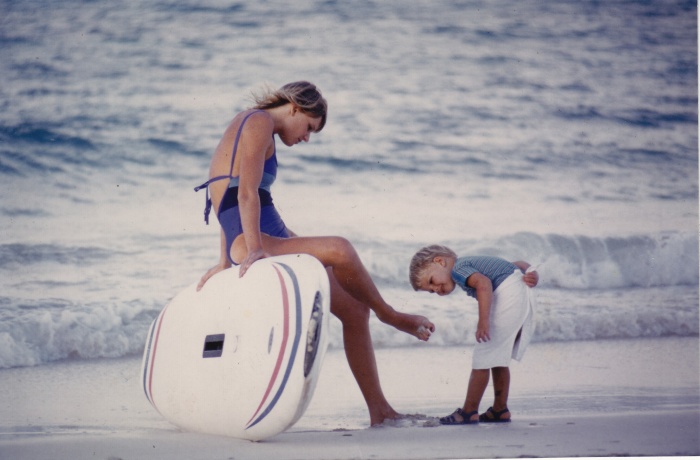
SIMPLE FEMALE EQUALITY is one of the six special programs of Docudays UA. It undermines stereotypes which are abundant in our society about the fates and roles of women in the contemporary world. Darya Bassel, the Docudays UA program coordinator, speaks about the courage to talk as a special documentary nerve of all these three daring films.
Stephanie Brockhaus, the director of the film Some Things Are Hard to Talk About, starts a conversation with her mother when she gets pregnant for the second time. Her relationship with her partner is not going well. Everything is very insecure. It is unclear how she should live from now on and if there is room in her life for another child. In response to her daughter’s confession, the mother also opens up. She also shares a painful experience of abortion in the times and under the circumstances when it was even more unacceptable for the society than now. And then confessions snowball. It turns out that every woman from their family has experienced abortion. And none of them ever spoke about it to anyone. Their first listener was Stephanie. And so, within the film, different eras tie into a knot with the very different, but equally painful experiences of women in one family.
The Serbian film by Mila Turajlic is a film which also starts with a family. But family here is not something intimate. The family is political. It is the whole country. The film The Other Side of Everything is about a family whose story, unlike the stories of many other families who have been through the grinder of Communism, was preserved, but still has many gaps and secrets. The story is continuing before our eyes, too. Outside the window, protests in contemporary Serbia are raging, and the protagonist, the director’s mother, tries to run away from home to support the protesters. She is a political activist, an eternal revolutionary, a classical member of the intelligentsia, if by this word we mean the feeling of responsibility for the fate of your people. When her daughter asks why they didn’t leave the country in the 1990s, when there was nothing to eat, she answers, “How could I abandon all this?”
The characters of the film Silent War also didn’t want to abandon their country, even though it was in the war. But they had to run away when their families denounced them and even threatened to kill them. Since the beginning of the war in Syria, thousands of women became victims of rape which the regime uses as a weapon of war. It is not appropriate to talk about rape in any culture. But in the Muslim culture, admitting that you have experienced rape may not just taint your good name, but also kill you. It is believed that it’s better to kill your wife or daughter than to live with the shame. Is it possible to talk about this? The women who speak up in this film have decided it is. And we must hear them.
Text: Darya Bassel
Header photo: "Some Things Are Hard to Talk About" by Stephanie Brockhaus